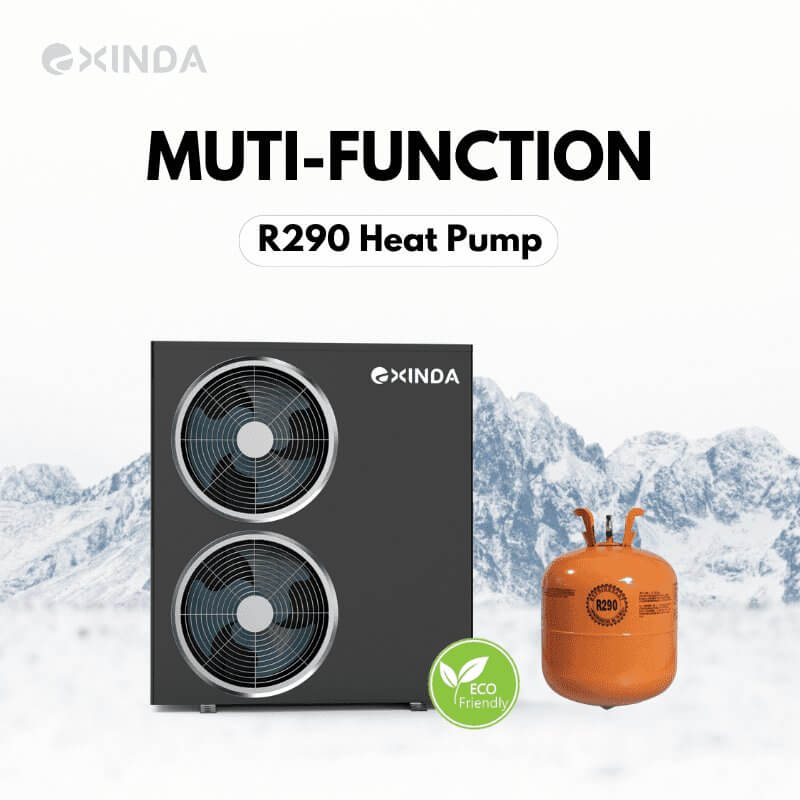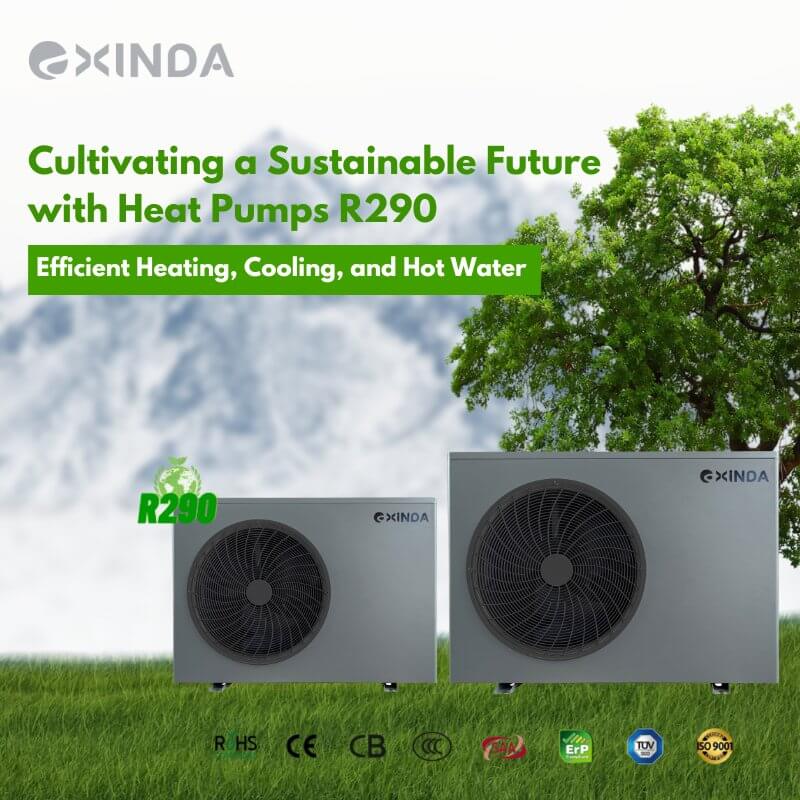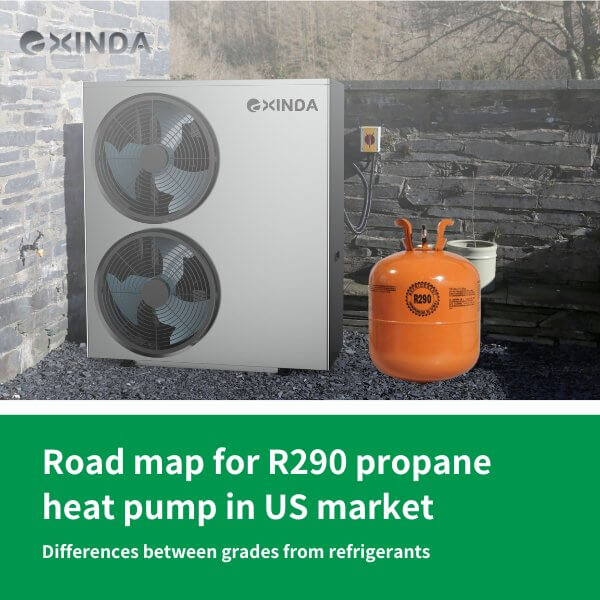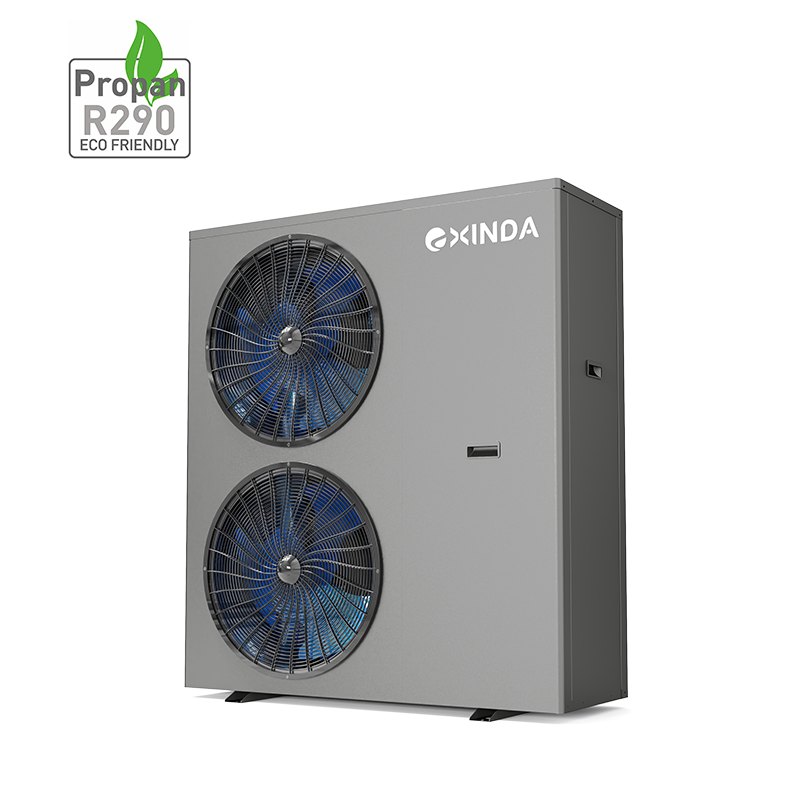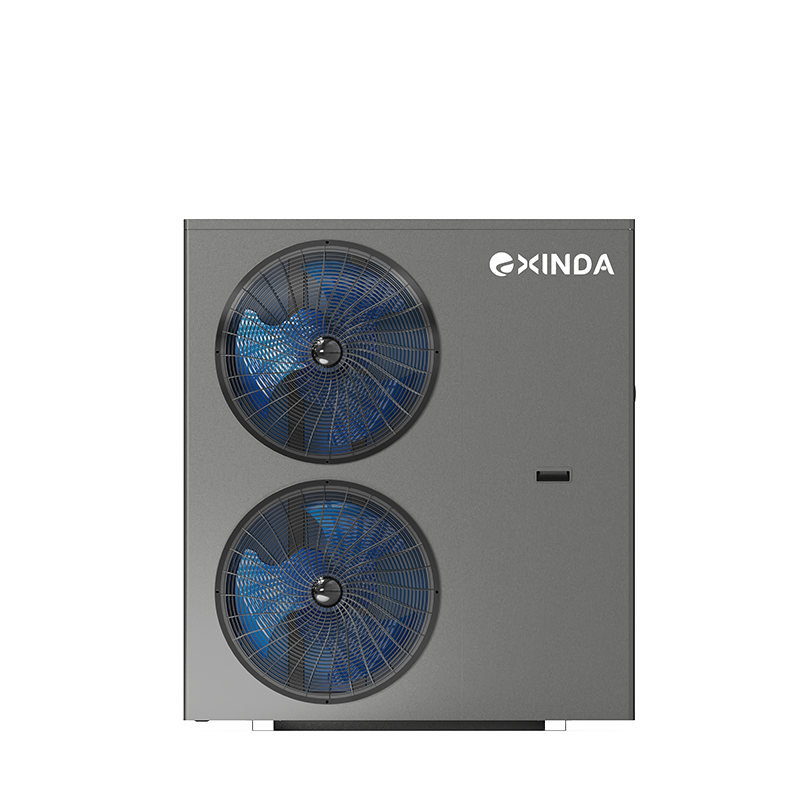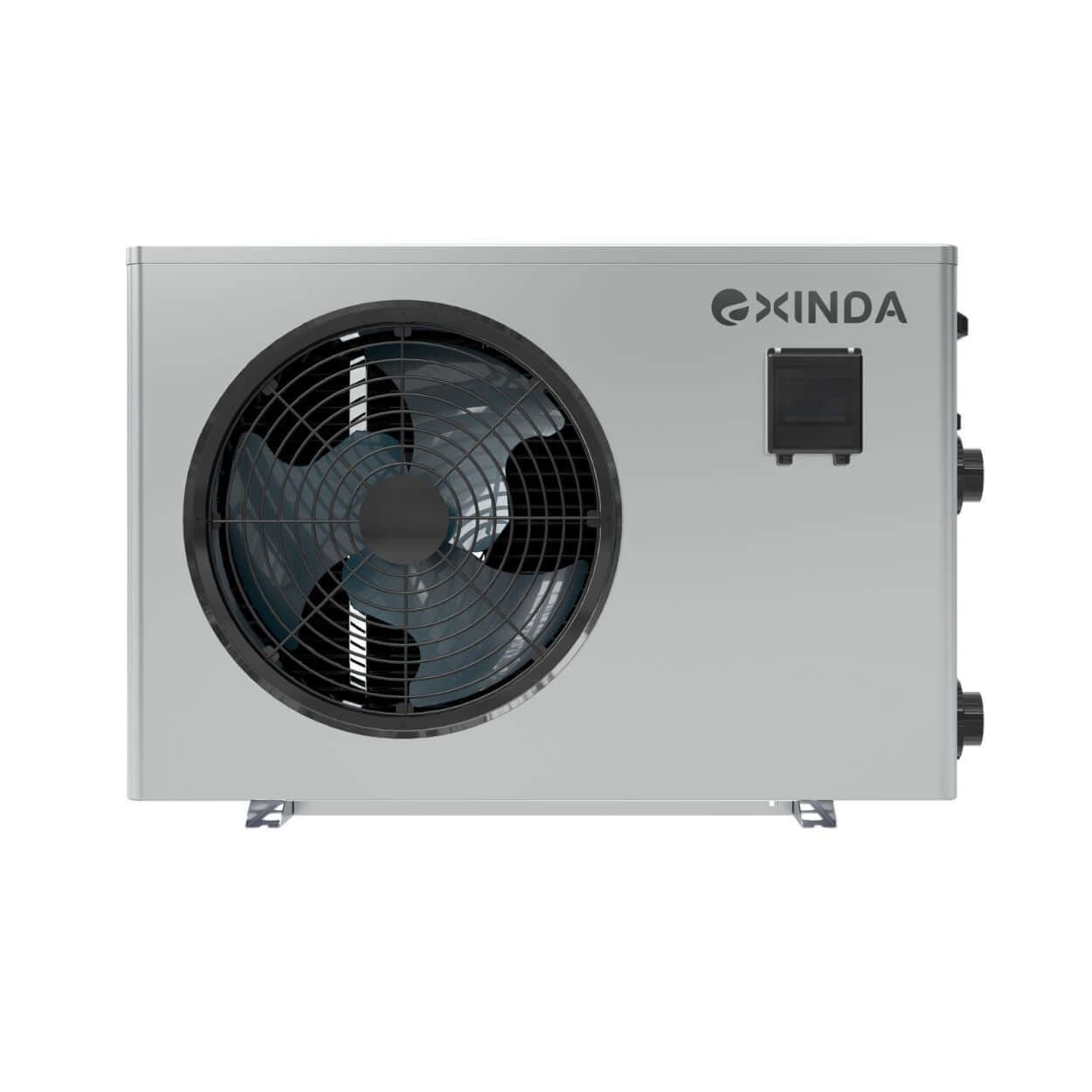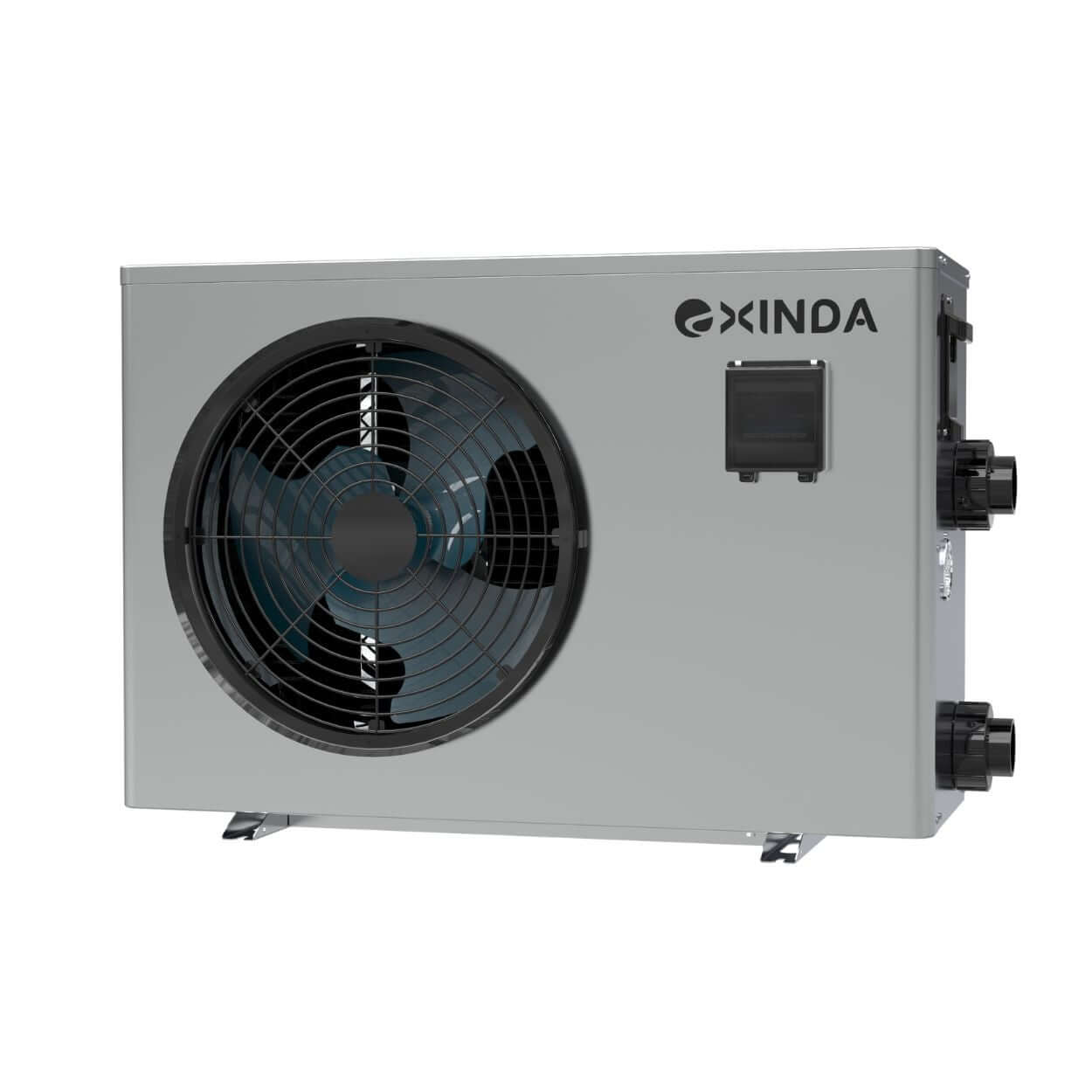The sustainable eco-friendly industry is constantly evolving, striving to meet the changing needs of consumers, while the company also adhering to increasingly stringent environmental regulations. One topic that has recently garnered attention is the availability of R290 refrigerant for the US market. It's important for Heat Pump professionals and consumers alike to understand the implications of this refrigerant and its possible future in the world.
What is R290?

R290, also known as propane, is an A3 refrigerant that offers several advantages over traditional refrigerants, such as lower global warming potential (GWP=3) and better energy efficiency. However, it is also classified as a flammable substance, which presents certain challenges when it comes to safety and regulation.
Why R290 is an ideal refrigerant for Exinda heat pumps?

Refrigerants play a critical role in Heat Pump systems by circulating, absorbing, compressing, and releasing heat. Choosing the right refrigerant can enhance the Heat Pump's performance and reduce its impact on the environment.

Firstly, R290 has high thermal conductivity and efficiency, which allows it to provide higher cooling capacity than other refrigerants under the same conditions. Secondly, R290 is a natural gas that does not contain chlorofluorocarbons (CFCs) or hydrochlorofluorocarbons (HCFCs), which means it has a lower global warming potential and less damage to the ozone layer. Thirdly, although R290 is flammable, appropriate safety measures can be taken in Heat Pump systems, such as using gas leak detection devices and fire valves. Finally, due to its high efficiency, less R290 is required to meet the same cooling demand, which reduces refrigerant costs and energy consumption.
R290 and Charge Volume Limitations
For R290 to be considered safe for use in residential air conditioning systems, the charge volume cannot exceed a specific threshold – referred to as m1 – which currently stands at 114 grams. If the charge volume surpasses this limit, additional safety measures must be taken into account, such as restricting the size of the room where the system is installed or improving mechanical ventilation and refrigerant leakage detection.
UL60335-2-40 Standard and R290
One of the most prominent standards that govern the use of refrigerants in the US is UL60335-2-40. A key change in this standard is the increased emphasis on refrigerant detection and cycle shutoff times. This is done to ensure that there is no accidental release of GWP refrigerants, further contributing to environmental protection efforts.
As it stands, UL60335-2-40 is the only standard in the US that covers heat pumps. According to this standard, A3 refrigerants, such as R290, are limited to a charge volume of 114 grams. In order to comply with this regulation, heat pump head units designed for use in the US market must be adapted to work with this specific charge volume.
The Future of R290 in the World
Given the numerous benefits of R290, there is certainly potential for this refrigerant to gain traction in the market. However, stakeholders in the Heat Pump industry must be prepared to navigate the regulatory landscape associated with this flammable substance. By adhering to relevant standards, Heat Pump professionals can ensure the safe and effective use of R290 in residential and commercial applications.
In conclusion, as the Heat Pump industry continues to evolve, the potential for R290 to become more widely adopted is a realistic possibility. By staying informed about the latest regulatory developments and industry trends, Heat Pump professionals and consumers alike can make informed decisions about the most efficient and environmentally friendly refrigeration solutions.

